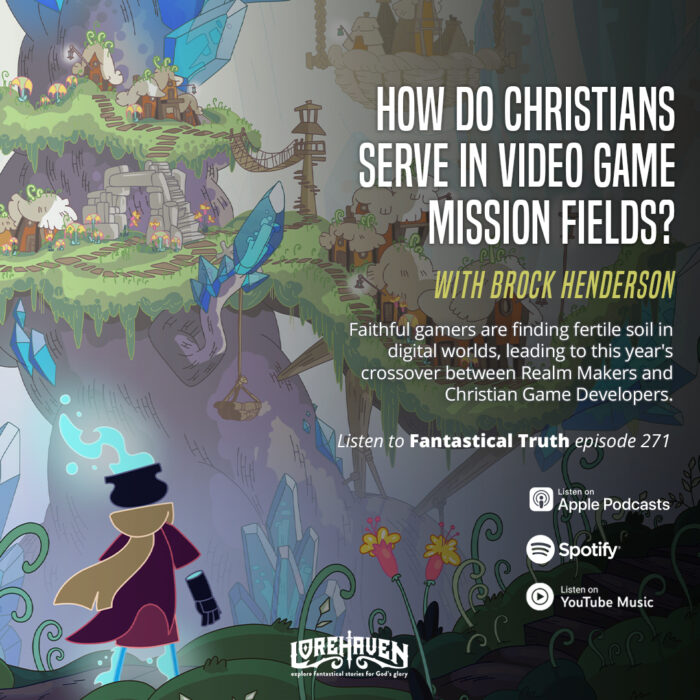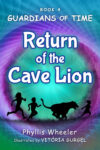How to Terraform the Internet For God’s Glory
We all live in the internet now. But today’s internet feels like a dystopian cyberpunk story. What happened to our sense of wonder, curiosity, and even light mischief? Can we get it back?
As Christians, we’re called to help redeem darkened lands. When the Lord speaks to his people living in Babylon, he says, “Seek the peace and prosperity of the city to which I have carried you into exile. Pray to the Lord for it, because if it prospers, you too will prosper” (Jeremiah 29:7). This echoes the Cultural Mandate, God’s first command for mankind to fill and subdue the Earth (Genesis 1:28). We are all called to steward not only natural resources but civilization itself, and 21st-century society lives in online cities.
So if the digital landscape is our city, what does seeking its blessing look like?
Let’s Terraform the Internet: the series
My previous two articles in this Let’s Terraform the Internet series were more observational and philosophical. This finale will be more practical. I’ll share all the wisdom and advice I’ve received and done my best to put into practice.
Put the internet in its place
This might seem strange, but I’ll start by saying: Let’s limit our access to the internet. We want to redeem the internet, not conform to it. In our metaphor of the internet-as-city, the web resembles a planet-wide mega-city, such as Coruscant from the Star Wars prequels). This realm offers endless stimulation. So we must first decide to “withdraw to quiet places.”1
We know “people’s eyes are never satisfied,”2 so you will never reach a point of seeing enough online content. You will always crave more, and the internet will happily oblige while the rest of your life ebbs away. So we need limits.
As my friend Alicia says, “The more limitless the internet has become in our lives, the more limited we feel.”
 We must adopt the spirit of Captain Jean-Luc Picard in his battle against cybernetic zombies and cry out: “The line must be drawn here! This far, no further!” Find out where that line is for you, then ruthlessly enforce it.
We must adopt the spirit of Captain Jean-Luc Picard in his battle against cybernetic zombies and cry out: “The line must be drawn here! This far, no further!” Find out where that line is for you, then ruthlessly enforce it.
In my case, I no longer sleep in the same room as my portable internet screens. This habit eliminates my temptation to end my days or start my mornings with a scroll. Instead, I’m freed to start and finish the day with my Bible or a book.
Speaking of freedom, I’ve found a service by that very name: Freedom. It automates my decision to step away from time-vortexes by blocking access to whatever I choose, whenever I want. This strengthens the weakest point in the chain: my internal resolve. Maybe you’ve been there.
Shield your attention to guard your affections
Many of us recall living under one kind of alert: the ringing of a landline phone. Now we live under hundreds of daily notifications. Do we really need them all?
When I turned off all notifications for social media, email, and other non-immediate nonsense, I noticed an immediate reduction in stress. I’ve muted everything that’s not a personal message from someone I know. Otherwise I have to fight too many dark patterns that work against me.
When I’m trying to read at length, I focus best if my internet devices are out of my reach. I also read digital books, but I quickly learned these work best with a dedicated ebook device, rather than a general-purpose tablet. Now I wonder what other “dumb” devices could replace my phone’s many functions, or what strategies I can use to return me to the days before apps.3
Recently we also took the step of using good old-fashioned CDs to listen to audio stories in our family minivan—The Chronicles of Narnia series from Focus on the Family Radio Theatre. We benefit from owning media in tangible form: discs look great, and they help with future-proofing. Silicon Giants might someday decide to remove my ebooks, but they can’t turn off my access to a CD.
Finally, get some good old-fashioned accountability. Do you recognize your need to unplug, but can’t seem to find the power? Tell someone and ask for help. Create your own strategies to live a more embodied life. Our Silicon Giants constantly battle against your boredom, so beware the lure of surrendering to their noise. Fight for your right to quietness. Boredom can actually benefit us.
Focus on truth, beauty, and goodness
Before social media took over the world, I belonged to the digital community, Dragonmount, the online fandom for Robert Jordan’s Wheel of Time books. Several of our Lorehaven writers also formed the early forum NarniaWeb.
These online communities, based on fandoms, had specific purpose: We’d learn a new book or episode would be released (or a new theory would circulate). We’d all go discuss it. Then we’d go do something else, in real life.
Now, however, social media has become a general-purpose town square. Sure, we can dip into Facebook groups to find like-minded people. But these communities are poorly designed, possibly on purpose. You can’t find carefully curated discussion sections, only endless scrolling with randomly appearing content. Posts that rise to the top are often polarizing, even incendiary.
In short, social media doesn’t foster true engagement. It simply creates addiction for its own sake. Worse, if we think social media pages are the only way we connect with others, we’re pulled down into destructive habits. We no longer share opinions. We fight to the death to defend ideas that just came to our mind.
Social media stops being a neutral gathering place, and becomes a battlefield.
When I journey into internet-land to celebrate, discuss, or even debate the things I love, I stay in better health. No, I don’t need to revisit my old digital hangouts to have better experiences. But I need new realms better designed for this purpose.
Gather in smaller enclaves
Oddly enough, I got my first hint of better internet when I discovered the #UFOtwitter community. Then I discovered a Discord server hosted by one of the more prominent voices. This was a great place to hang out when I was planning our Fantastical Truth episodes in the Armies of the Aliens series.
Quickly I realized that despite our million interpretations about UFOs, leading to many arguments, we had still found a kind of unity. Everyone came to chat about a common topic of intense interest—a fandom. Such shared love for a topic can foster brotherly love.
Still, it’s not so easy to love equally thousands of Facebook friends discussing all manner of topics, especially when random friends-of-friends drop into the comments to “educate” someone. But if a handful of people gather in a smaller and more focused setting, discussion usually goes better.
To test this hypothesis, I recently started a local book club. I invited a few friends and each of them invited others. So at first most of us were strangers. To evade the Silicon Giants, we started a group chat using Signal. Despite some topical tangents, we’re easily able to find deep conversations. Meeting in person certainly helps.
Others here at Lorehaven, like our review chief Austin Gunderson, are exploring ways to become “Amish cyberpunks.” Austin is experimenting with a decentralized network called Urbit. We’re also looking at ways we can gather fellow Lorehaven Explorers on a platform all our own.
Avoid or engage?
So how does this revitalize the internet? Am I suggesting we avoid standard digital town squares? What if I am? Ask yourself: do current online offerings satisfy you? Or do you long for something better? What if you could be part of the solution?
As J. R. R. Tolkien said, we are subcreators with God. Tolkien made up the word, but God made the original calling. Even before the Fall, our Creator wanted his people to steward the world. Christians may terraform the internet by creative acts we already do well: creating small, authentic communities and inviting others to join us. In time, these tiny gatherings make big ripples in the broader world.
When we give our attention and affections primarily to small groups united by a common purpose, we’ll feel less attraction to generic social networks. In turn, this will help us to approach the Silicon Giants’ captives with more grace. Instead of seeking fights with enemies, we’ll seek out digital refugees.
Of course, we’ll need to explore technical details for making these digital enclaves. But that’s not as important as shifting our mindsets. We need to stop resigning ourselves to being serfs who belong to Big Tech overlords. Further, we must see that God’s original Cultural Mandate (Genesis 1:28) applies to cyberspace. So let’s spread throughout this realm and build little pockets of God’s kingdom.
What’s one way you can terraform the internet?
- Isaiah 32:18; Luke 5:16. ↩
- Proverbs 27:20 ↩
- Don’t get me wrong, I’m an app-aholic and have folders of ‘em. When the iPhone App Store first came out, I spent weeks looking at every new app or game. I love the sense of wonder and new possibilities we accomplish with clever coding. But this too must have its place. ↩

































I agree with what you are saying, in general. For me, I’ve cut down the internet to a research tool. My social existence online is restricted to private FaceBook groups, and blogs. I notice below here, for this comment, that Lorehaven offers WordPress, Google, twitter, or Facebook to fill in my details. I really don’t use any of them. I run a group on spirit-filled speculative fiction writing and its authors. I use a faceBook group, and a blog/website. Neither of those options is really satisfying. I suspect that’s because the pentecostal/charismatic variant of fiction is a fairly small niche overall. The speculative fiction portion of that seems to be very small.
I would love to be involved with an active, tightly focused online group like this. What I’ve been doing is not satisfying.
As an addendum to what you’re saying here. I’ve found a great deal of relief by cutting off live TV and movies. That helps a lot. But I may be able to do that because I grew up before TV. My youth was spent reading, not watching, or online.
I’d frame the entire issue differently. It’s trying to curtail the brain equivalent of mindless snacking, right?
I’m totally stealing this from a tumblr repost, but if you find yourself scrolling through the same three websites like a tiger pacing its cage, then like the tiger, you need enrichment. (The tumblr post goes on to joke that you should try stuffing a pumpkin with five pounds of raw hamburger and rolling it around your enclosure.)
If the novelty of the internet has worn off and is not getting you the happy brain chemicals, then try something else.
Fun fact: a planet-wide city is called an acumenopolis.